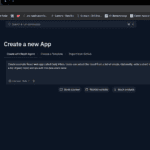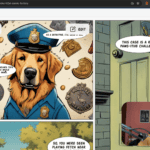In a rapidly evolving world, understanding the right skills to cultivate is crucial for success. This blog explores the discussion of key skills discussed by Devon Eriksen on 9 December 2024, emphasizing the importance of agency and adaptability in navigating the complexities of the future.
Table of Contents
- Who Is Devon Eriksen?
- Education, Intelligence, And The Future
- The Flaws in Current Education Systems
- The Seven Liberal Arts of the Modern World
- The Importance of Agency
- Agency vs. Intelligence: What Drives Success?
- How to Develop Agency in Children
- Navigating Hard Problems
- Artificial Intelligence and Human Uniqueness
- The Role of Stories in Shaping Society
- The Impact of Fiction on Culture
- Ownership and Investment Rights
- The Shift from Traditional Publishing
- Building Trust with Your Audience
- Advice for Aspiring Authors
- FAQ: Skills and Future Learning
Who Is Devon Eriksen?
Devon Eriksen is a modern thought leader whose insights have captivated audiences across social media platforms. Known for his articulate communication style and profound understanding of contemporary challenges, he addresses critical issues surrounding education, agency, and the skills necessary for thriving in an evolving world. His recent work, including the science fiction novel “Theft of Fire,” reflects his innovative approach to storytelling and problem-solving.
Education, Intelligence, And The Future
As we navigate the complexities of the future, the relationship between education and intelligence becomes increasingly significant. Traditional educational systems often prioritize rote memorization and standardized testing, which may not equip individuals with the necessary skills for real-world challenges. Instead, Eriksen advocates for a paradigm shift that emphasizes critical thinking, adaptability, and self-directed learning.
In this new educational framework, intelligence is not merely about cognitive ability. It encompasses emotional intelligence, creativity, and the capacity to learn from experiences. By fostering a growth mindset, individuals can cultivate resilience and remain adaptable in the face of uncertainty.
Key Skills for the Future
- Critical Thinking: The ability to analyze information and make informed decisions.
- Adaptability: Navigating change and responding effectively to new challenges.
- Emotional Intelligence: Understanding and managing one’s emotions and the emotions of others.
- Creative Problem Solving: Generating innovative solutions to complex issues.
The Flaws in Current Education Systems
Eriksen argues that the fundamental flaw in current education systems lies in their reliance on third-party funding. When education is funded by external entities, the curriculum often reflects the interests of those parties rather than the needs of the students. This disconnect leads to an education that is more about compliance than empowerment.
Moreover, current systems are often designed to produce workers rather than thinkers. Students are trained to perform specific tasks instead of being taught how to learn and adapt. This approach stifles creativity and critical thinking, essential skills for the future.
Historical Context of Education
Eriksen draws parallels between modern education and historical systems of training, such as those used for slaves in ancient Rome. Just as slaves were taught to perform specific tasks without understanding the broader context of their work, today’s students often receive training rather than a holistic education. This approach fails to prepare them for the complexities of modern life.
The Seven Liberal Arts of the Modern World
In his discussions, Eriksen highlights what he calls the Seven Liberal Arts of the modern world. These arts serve as foundational skills necessary for navigating contemporary challenges. They include:
- Logic: The ability to derive truth from known facts.
- Statistics: Understanding and interpreting data implications.
- Rhetoric: The skill of persuasion and recognizing persuasion tactics.
- Research: Gathering information on unknown subjects.
- Practical Psychology: Discernment of true motives behind actions.
- Investment: Managing and growing existing assets.
- Agency: Making proactive decisions about one’s path and taking action.
These arts empower individuals to think critically, adapt to change, and take control of their futures, making them essential skills in today’s society.
The Importance of Agency
Agency, as defined by Eriksen, is the capacity to act independently and make choices that influence one’s life. This concept is particularly vital in the context of education and personal development. When individuals possess agency, they are more likely to take initiative, pursue their interests, and overcome obstacles.
Furthermore, agency fosters resilience. Those who believe they have the power to shape their destinies are more likely to persevere in the face of challenges. This mindset enables individuals to learn from failures and adapt their strategies, ultimately leading to greater success.
Agency vs. Intelligence: What Drives Success?
While intelligence is often celebrated as a key predictor of success, Eriksen emphasizes that it is not the sole factor. Many highly intelligent individuals struggle to achieve their goals due to a lack of agency. Success is driven more by the ability to take initiative and learn from experiences than by mere cognitive ability.
Agency encourages individuals to experiment, take risks, and embrace failure as a learning opportunity. This proactive approach enables people to navigate the complexities of life more effectively, leading to personal and professional growth.
In conclusion, as the landscape of education and the workforce continues to evolve, developing essential skills, fostering agency, and understanding the limitations of traditional intelligence will be crucial for future success. With a focus on these areas, individuals can better prepare themselves for the challenges ahead.
How to Develop Agency in Children
Developing agency in children is essential for their growth and adaptability. Agency refers to the ability to make choices and act independently, which fosters resilience and self-efficacy. Here are several strategies to cultivate this skill:
- Encourage Problem-Solving: Present children with challenges that require critical thinking and creativity. Allow them to explore different solutions and learn from their mistakes.
- Promote Decision-Making: Involve children in decision-making processes, whether it’s choosing a family activity or selecting their own clothes. This empowers them to express their preferences and take responsibility for their choices.
- Support Risk-Taking: Create an environment where taking calculated risks is encouraged. Emphasize that failure is a part of learning and growth.
- Teach Emotional Awareness: Help children understand their emotions and how to manage them. This awareness can empower them to make decisions based on their feelings and values.
Navigating Hard Problems
Navigating hard problems is a skill that can be cultivated through practice and experience. Hard problems are those that may not have clear solutions and require perseverance. Here are effective approaches to tackle these challenges:
- Break Down the Problem: Teach children to decompose complex problems into smaller, manageable tasks. This makes the overall challenge less daunting.
- Encourage a Growth Mindset: Foster the belief that abilities can be developed through dedication and hard work. This mindset helps children view challenges as opportunities for growth rather than obstacles.
- Model Persistence: Share your experiences with tackling hard problems and the importance of perseverance. Demonstrating your own resilience can inspire children to adopt the same attitude.
- Reflection and Learning: After addressing a difficult problem, encourage children to reflect on the process. Discuss what worked, what didn’t, and how they can improve in the future.
Artificial Intelligence and Human Uniqueness
The rise of artificial intelligence (AI) prompts questions about what makes us uniquely human. While AI can outperform humans in specific tasks, it lacks the ability to navigate complex emotional and social landscapes. Here are key aspects that highlight human uniqueness:
- Creative Thinking: Humans possess the ability to think creatively and develop original ideas, which AI currently cannot replicate.
- Emotional Intelligence: Understanding and managing emotions is a distinctly human trait. This skill allows for empathy and nuanced social interactions.
- Adaptability: Humans can adapt to changing environments and learn from diverse experiences, enabling them to thrive in various contexts.
- Ethical Considerations: Humans engage in moral reasoning and ethical decision-making, which is crucial in navigating complex social dilemmas.
The Role of Stories in Shaping Society
Stories have a profound impact on culture and society. They serve as a means of communication, education, and connection among individuals. Here are some ways stories shape our world:
- Cultural Identity: Stories encapsulate the values, beliefs, and traditions of a culture, helping individuals understand their identity and place in society.
- Empathy and Understanding: Through storytelling, individuals can gain insights into different perspectives, fostering empathy and compassion for others.
- Motivation and Inspiration: Stories of triumph and perseverance inspire individuals to overcome challenges and pursue their goals.
- Preserving History: Narratives allow societies to document and remember their past, ensuring that lessons learned are passed down through generations.
The Impact of Fiction on Culture
Fiction plays a pivotal role in shaping cultural narratives and influencing societal norms. It provides a platform for exploring complex themes and human experiences. The following points illustrate the impact of fiction:
- Reflection of Society: Fiction often mirrors societal issues, prompting discussions and reflections on important topics such as justice, identity, and morality.
- Challenging Norms: Many fictional works challenge existing societal norms, encouraging readers to question the status quo and envision new possibilities.
- Building Community: Shared stories create bonds among individuals, fostering a sense of community and belonging.
- Inspiring Change: Fiction can serve as a catalyst for social change by highlighting injustices and advocating for positive transformations.
Ownership and Investment Rights
Ownership and investment rights are fundamental concepts that underpin economic systems and societal structures. Understanding these rights is crucial for personal and collective empowerment. Here’s a closer look:
- Definition of Ownership: Ownership implies having control over a resource, allowing individuals to use, manage, and transfer it as they see fit. This control is essential for fostering innovation and productivity.
- Investment Rights: These rights allow individuals to invest their time, money, and efforts into projects, expecting returns on their investment. This concept is vital for economic growth and personal wealth accumulation.
- Impact on Society: When individuals have clear ownership rights, it promotes responsibility and accountability, leading to more sustainable practices.
- Challenges to Ownership: Issues such as government intervention and collective ownership can undermine individual rights, making it essential to advocate for clear ownership structures.
The Shift from Traditional Publishing
The landscape of publishing has undergone a significant transformation in recent years. Traditional publishing houses once served as gatekeepers, controlling which authors and stories reached the public. However, the advent of the internet and self-publishing platforms has disrupted this model, allowing authors to bypass traditional channels.
Devon Eriksen highlights that the traditional model relied heavily on financial backing from publishers, which acted as venture capitalists for emerging writers. This system was beneficial for authors, publishers, and readers alike. However, as publishers consolidated and became more disconnected from their audiences, they lost sight of their primary role: to serve the interests of readers.
Today, many authors find that they can connect directly with their audience through social media and self-publishing platforms. This shift empowers writers to maintain creative control and receive immediate feedback, enhancing their ability to refine their craft. In this new paradigm, the relationship between authors and readers is more dynamic and interactive, fostering a sense of community and shared purpose.
Building Trust with Your Audience
Trust is a cornerstone of any successful author-reader relationship. In an era where information is abundant and choices are overwhelming, building a loyal audience requires transparency and authenticity. Devon Eriksen emphasizes the importance of engaging with readers and being open about the creative process.
Authors should share behind-the-scenes glimpses into their writing journey, allowing readers to see the effort and passion that goes into creating their work. This vulnerability not only humanizes the author but also fosters a deeper connection with the audience.
- Consistent Communication: Regular updates on writing progress, upcoming projects, and personal insights keep readers engaged and invested.
- Respond to Feedback: Listening to reader feedback and incorporating it into future works shows that the author values their audience’s opinions.
- Be Authentic: Sharing personal stories and challenges can create a relatable narrative that resonates with readers.
By prioritizing trust and communication, authors can cultivate a dedicated following that not only supports their work but also advocates for it within their networks. This proactive relationship is essential for long-term success in the ever-evolving publishing landscape.
Advice for Aspiring Authors
For those looking to embark on their writing journey, Devon Eriksen offers invaluable advice. The path to becoming a successful author is often fraught with self-doubt and uncertainty, but embracing the journey is crucial.
First, aspiring authors should recognize that fear is a common companion in the creative process. Instead of allowing fear to paralyze them, they should use it as motivation to push through challenges. Writing is an iterative process, and each draft is an opportunity for growth.
- Write Regularly: Establishing a consistent writing routine is essential. Whether it’s a few hundred words a day or a dedicated time each week, regular practice hones skills and builds confidence.
- Seek Feedback: Sharing work with trusted peers or writing groups can provide constructive criticism and fresh perspectives that enhance the author’s craft.
- Embrace Self-Publishing: Don’t wait for validation from traditional publishers. Self-publishing allows authors to share their work on their terms and reach audiences directly.
- Market Yourself: Building a personal brand and marketing one’s work through social media and author platforms is crucial in today’s digital landscape.
Ultimately, the key to success lies in perseverance and the willingness to learn from both successes and failures. Aspiring authors should remember that their voice matters, and there is an audience out there eager for their stories.
FAQ: Skills and Future Learning
As the publishing landscape continues to evolve, certain skills become increasingly important for authors to thrive. Here are some frequently asked questions regarding the skills necessary for future success in writing and publishing:
What skills should aspiring authors develop?
- Writing Proficiency: Mastering the art of storytelling, character development, and dialogue is fundamental.
- Marketing Skills: Understanding how to promote one’s work effectively through social media, email newsletters, and author websites is essential.
- Technical Skills: Familiarity with self-publishing platforms and basic graphic design for cover art can enhance an author’s professional presentation.
- Networking: Building relationships with other writers, publishers, and industry professionals can open doors and create opportunities.
How can authors continue to learn and adapt?
Continuous learning is vital in a rapidly changing industry. Authors should seek out workshops, online courses, and writing communities to stay updated on industry trends and refine their skills. Engaging with other authors and participating in discussions about the craft can also provide valuable insights.
In conclusion, the journey of an author is filled with challenges, but with the right skills and mindset, success is within reach. Embracing agency, fostering trust, and continuously honing one’s craft are essential components of a fulfilling writing career.
This blog post is inspired by the video The Most Important Skill To Learn In The Next 10 Years With Devon Eriksen. All credit for the video content goes to the original creator. Be sure to check out their channel for more amazing content!









